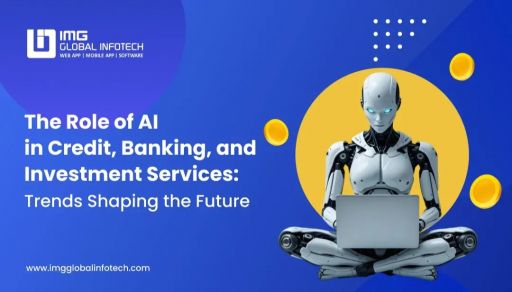How To Build An AI Voice Agent: Step-by-Step Guide
Mohit Mittal
Sep 02, 2025
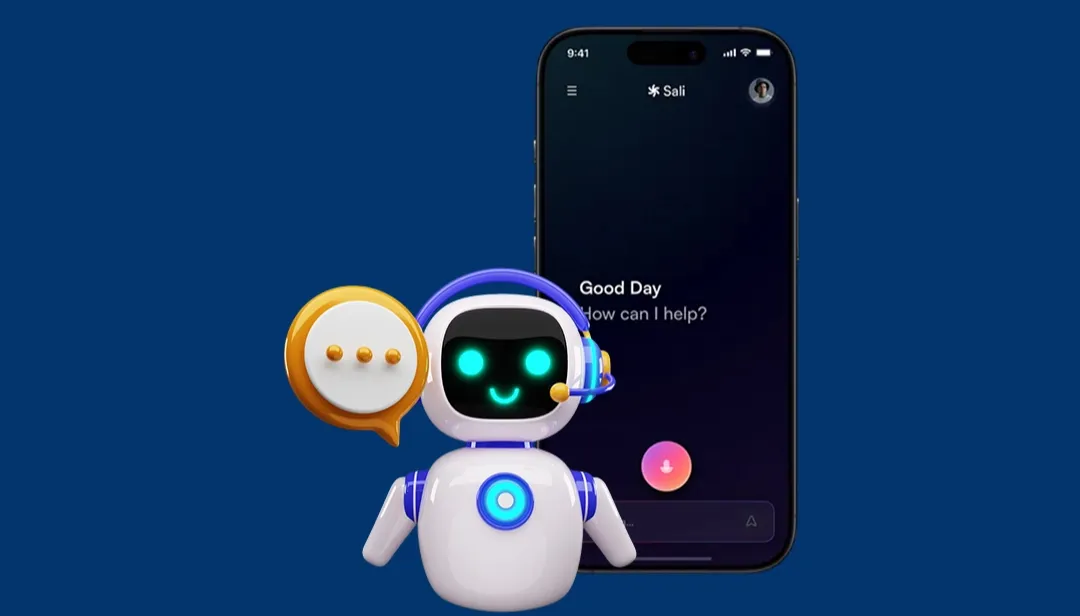
As we all know, AI is constantly evolving, as we have seen in adaptable AI systems. Now AI technologies are moving to the next stage. If we are saying that, AI will also respond to your voice. In simple words, you can now control it through the verbal system. Now you are thinking that we are joking, but in this technological world everything is possible, and this verbal AI system is possible through AI voice agents. It's not about a futuristic idea; it's a kind of logical move, and it can easily adjust to various operations like voice-based apps, improved accessibility, and automated call centers.
There is a huge demand for AI voice agents in technical industries that are helpful to enhance the customer experience in their businesses. We have a suggestion: you should also integrate AI voice agents that can streamline your business operations efficiently, but you are thinking how is it possible?" Well, in this blog, let's explore how to build a voice ai agent that can manage your business operations seamlessly.
But first we need to understand what is an ai voice agent is, and then we can explore the next elements in the blog as well?
What is an AI Voice Agent?
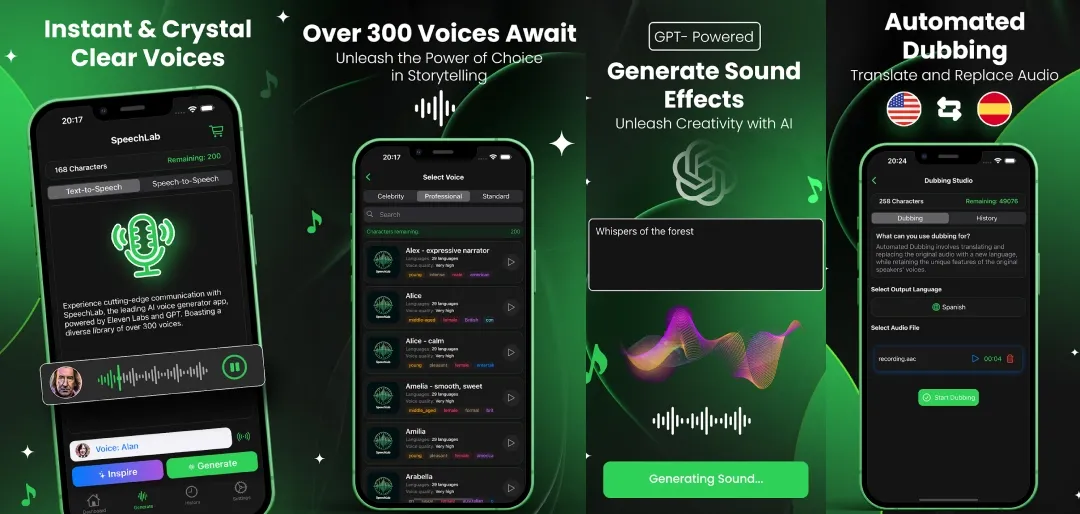
Virtual agents, or conversational agents, are other names for AI voice agents. Artificial intelligence (AI) systems are complex software programs designed to understand and respond to human speech. Before providing a meaningful response, these voice-driven systems use artificial intelligence to process users' smooth, Human-like interactions in the results by ai voice agent Commercial.
By automating processes like customer service inquiries, triaging health consultations, and even retail purchasing assistance, they are already influencing industries. More effective communication, less friction in customer experiences, and vast potential for innovation in a variety of fields have all been brought about by the rise of AI voice agent development.
Key Benefits of AI Voice Agents
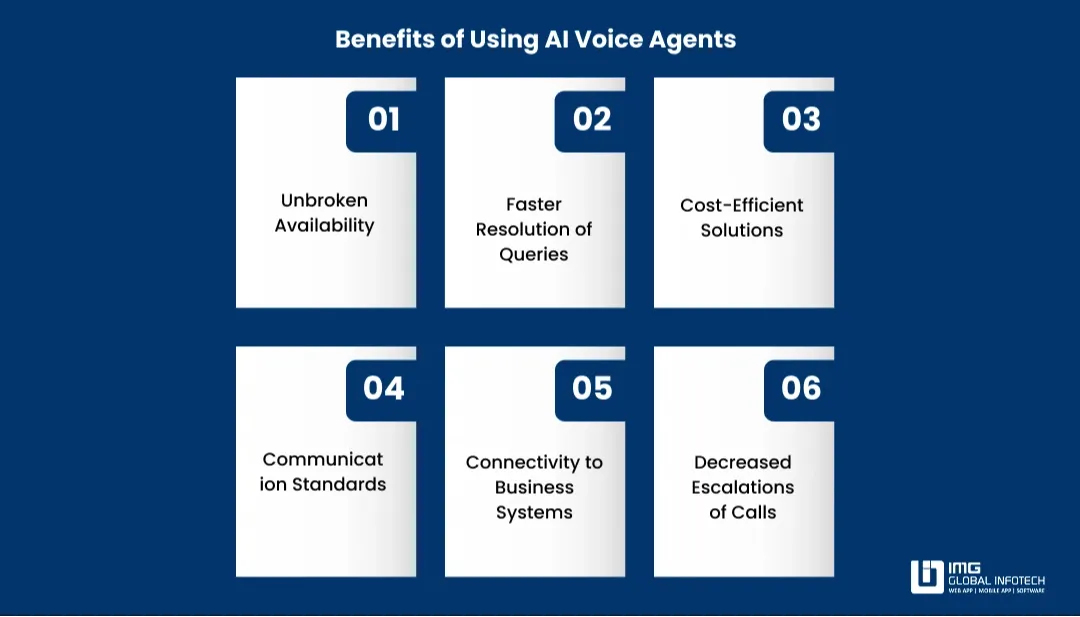
AI voice agents can help businesses to integrate voice-based interactions that can improve customer service and productivity and that can also optimize costing in your business. It can also automate high-volume transactions from air ai voice agent. These AI agents can upscale your business growth without doing any kind of compromise in the service quality of your business. Here are some key benefits of AI voice agents.
Unbroken Availability
AI voice agents can manage inquiries 24/7 seamlessly with uninterrupted support in different time zones by ai voice agent services for businesses. This mainly helps to reduce dependency on human agents, especially from after-hours services. It can also minimize the complete disruptions that would majorly hit in peak periods in your business.
Faster Resolution of Queries
Through AI voice, businesses can resolve queries faster, which can also reduce the waiting time from ai voice agent agency Commercial. This complete procedure can enhance customer satisfaction because AI voice agents can support multiple conversations at one time. It can deliver the instant responses, and it can also eliminate the waiting time for the users.
Cost-Efficient Solutions
Integration of AI voice agents in any business is a cost-efficient solution. These AI agents can reduce the major operational cost that is necessary for handling routine interactions in a business from ai voice agent for customer service. Through this technology human agents can mainly focus on highly complex value conversations. This can enhance the resource allocations that provide long-term savings in your business.
Communication Standards
For businesses, maintaining uniformity throughout the thousands of interactions that take place each day is also crucial. AI voice agents consistently provide precise, policy-compliant answers, minimizing mistakes brought on by human fatigue or misunderstanding.
Connectivity to Business Systems
AI voice agents retrieve pertinent data in real-time by connecting to CRMs, ERP systems, and other enterprise platforms. This makes it possible for more effective workflow automation, quicker problem solving, and tailored interactions.
Decreased Escalations of Calls
AI voice agents reduce the number of calls that are routed to human agents by answering a large percentage of questions on their own. They obtain pertinent information beforehand when escalation is required, guaranteeing a seamless transition and cutting down on handling time.
Step-by-Step Guide to Build an AI Voice Agent
Building an AI voice agent involves strong planning and technical accuracy. Below is how developers can proceed to build ai voice agent with AI Voice Agent step by step.
Define the Purpose and Scope
Start by writing down what your voice agent will be doing. Will it be handling customer support? Scheduling appointments? Make sure your project objectives are well defined and achievable to build voice ai agent for your business.
Choose a Platform and Dataset
Choose tools and platforms like AWS Alexa Skills Kit, Google Dialogflow, or Microsoft Bot Framework. Working with data providers like Macgence guarantees your AI model is trained with the highest quality data to perform and deliver better accuracy to build an ai voice agent. This forms the backbone of every successful AI Voice Agent Development project.
Create a Conversational Framework
Create conversation flows for every possible user interaction in AI development frameworks. For example, if your agent helps with product purchases, anticipate responses to questions such as "What products are available?" or "How long does shipping take?"
Implementation of Technological Stack
The selection of tech stack elements is a crucial decision because it is responsible for the success or failure of projects in your business by ai voice agent development.
There should be a close inspection while selecting the technological stack to build an AI voice agent for your business. Here is the tech stack table that can clarify the crucial elements in the technological stack along with Best generative AI tools.
Train and Test the Model
Supply your AI voice agent with training data and optimize its accuracy with iterative testing. Complete gaps in speech recognition, context awareness, and conversation structure during this stage of ai voice agents. This is a vital milestone in AI Voice Agent Development because it guarantees the fullness of your agent's features.
Deploy and Maintain
Deploy the voice agent on your target platforms (mobile applications, smart devices, or websites) after a stable build from an ai voice agent development company. Maintain quality and respond to user feedback by continuously monitoring and updating the system.
Voice-Based AI Agent Use Cases
There is a big role for AI voice agents that are transforming various industries that can provide scalable and context-aware automation by the top AI app development company. This process can enhance the user experience and efficiency. Here are some use cases of AI voice agents of this technology nowadays.
Contact Hubs
AI voice agents are very reliable support for contact hubs and customer support. These agents can automate the routine inquiries that can eliminate the waiting time and enhance the resolution rates by Adaptive AI Development. It can also assist in various activities like transaction support, service requests, and fixing troubleshooting while optimizing the call routing that can identify the user intent.
Healthcare Sector
In telemedicine and healthcare, AI voice agents can manage and streamline the management tasks like patient reminders, appointment scheduling, and medical information dissemination. Hire ai developers that can help you to build AI voice agents for the healthcare sector as well. The AI voice agents also support multilingual interactions that can make healthcare services more diverse and accessible among populations. It can also automate the routine patient interactions that help voice AI to eliminate the burden on healthcare experts.
Finance
AI voice agents support customer service, fraud detection, and regulatory oversight in the finance and compliance industries. AI-powered assistants are used by banks and other financial institutions to assist customers with transaction management, balance checks, and secure voice authentication for financial AI-driven systems examine trader communications in compliance-focused applications to identify possible wrongdoing and guarantee regulatory standards are followed.
E-Commerce
AI-powered voice agents improve voice-assisted shopping in retail and e-commerce by facilitating smooth product searches, tailored suggestions, and order management via natural voice interactions. They increase accessibility and convenience for online shoppers by enabling users to place, edit, or track orders without having to navigate complicated interfaces.
Challenges in Building AI Voice Agents
Now we have seen how to integrate AI voice agents and the use cases of these agents. Now it's time to talk about some major challenges that would create a great disturbance to building AI voice agents for your business as well.
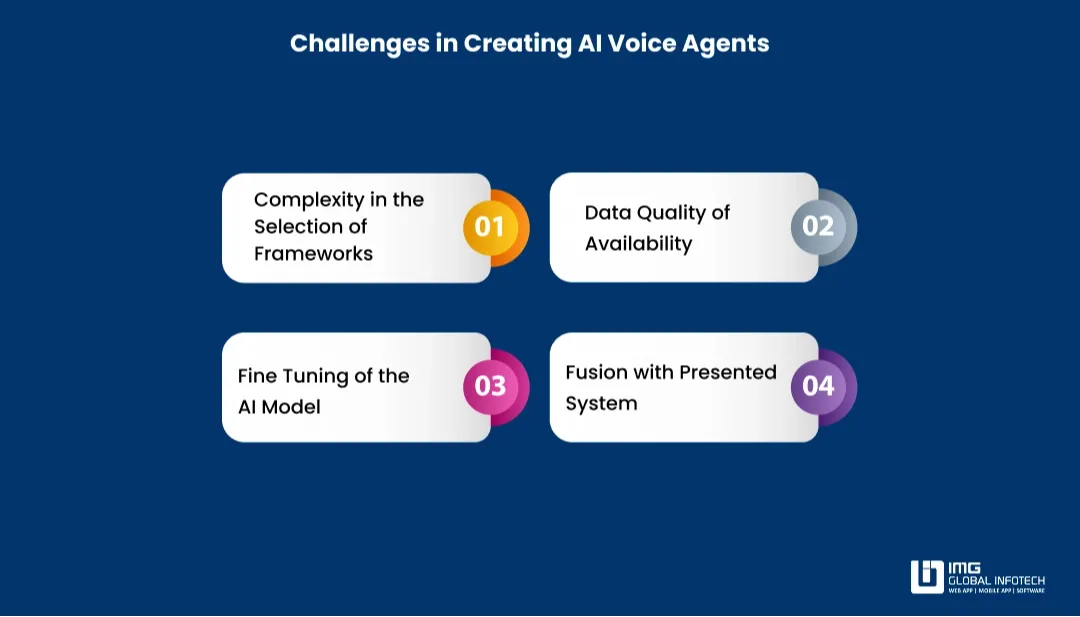
Complexity in the Selection of Frameworks
Selecting the best AI development tools and frameworks for your project can be overwhelming due to the abundance of options available.Every tool has its own advantages and disadvantages, and selecting the incorrect one can result in incompatibilities with other systems or inefficiencies.
Solution: Begin by carefully assessing your agent's needs. Are you developing an AI that can have conversations? Or a big data processing agent? Look into and select tools that meet your scalability requirements and business goals.
Data Quality of Availability
Making sure that high-quality, pertinent data is accessible is one of the most difficult challenges in creating an AI agent that works. Your AI agent might have trouble making wise decisions or producing significant outcomes if there isn't enough clean data. To guarantee its correctness and applicability, data preparation can be laborious and demands close attention.
Solution: Make an investment in reliable preprocessing and data collection techniques. To enhance your AI agent's performance over time, regularly assess your data for relevance, accuracy, and consistency.
Fine Tuning of the AI Model
Training your AI agent can be a drawn-out and iterative process, even with the correct data and resources. It can be challenging to make sure your AI learns efficiently without overfitting or underfitting the data, and it might need ongoing fine-tuning.
Solution: To enhance model performance, apply strategies like hyperparameter tuning and To guarantee accuracy and relevance, track training progress on a regular basis and make necessary model refinements.
Fusion with Presented System
Once your AI agent is trained, integrating it with your existing business systems can present technical challenges. For automation and real-time decision-making, it is essential to guarantee smooth communication between the AI agent and your other platforms, such as CRM or ERP systems.
Solution: Arrange the integration of your AI agent in advance. For a more seamless integration, collaborate with developers who are familiar with your current tech stack, and think about utilizing middleware or APIs.
Future Trends in AI Voice Agents
Now AI voice agents are now moving forward on a transformative shift in various elements with advancements that can observe the future scope by redefining the human technologies. It can build a better interaction system of human brains and the technological effort to brighten the scope of AI terms in the future generation as well.
Multimodal System
Multimodal processing is another highlight feature that enables voice assistants to smoothly unify and understand different types of inputs, such as text, audio, and even images. Google's recent developments towards its AI models confirm this trend, as they make it possible for assistants to process not only spoken commands but also image inputs, creating more elaborate interactions.
Emotion Analysis
Emotion recognition technology is progressing at a breakneck speed, allowing voice agents to understand the emotional state of users via vocal indicators. Players such as NICE are leading the front in emotion detection in voice AI and assisting organizations to customize their response based on user sentiment.
Handling Context
Improved context management is another critical area of voice AI development. Contextual comprehension allows such agents to sustain conversation threads without becoming disoriented by the dialogue.
What this implies is that if you inquire about an airplane with your virtual assistant and then ask about hotel reservations, it can easily change subjects without requiring you to repeat information. This feature enables users to interact more naturally with technology, closing the gap between human communication and voice AI.
Cross-platform Consistency
Cross-platform unity is something organizations must pursue if they want to have smooth user experiences. Microsoft has led the way with voice technology across applications such as Teams and Office 365. Such unity allows users to access sophisticated voice features regardless of their platform, whether scheduling in Outlook or having video calls in Teams.
Closing Thoughts
Through this blog, we have explained about how to build an AI Voice Agent from this step-by-step guide. We have also discussed several elements like key benefits, development process, technical stack, use cases, challenges, and future trends in AI voice agents. This AI technology is a reliable solution for your business to expand their growth in several regions seamlessly. IMG Global Infotech is also enlisted in the top AI software development companies as well. So, we are always here to assist you to develop AI voice agents according to your business objectives and needs as well.
-
 How Much Does Truck Booking App Development Cost in 2026?
How Much Does Truck Booking App Development Cost in 2026?
-
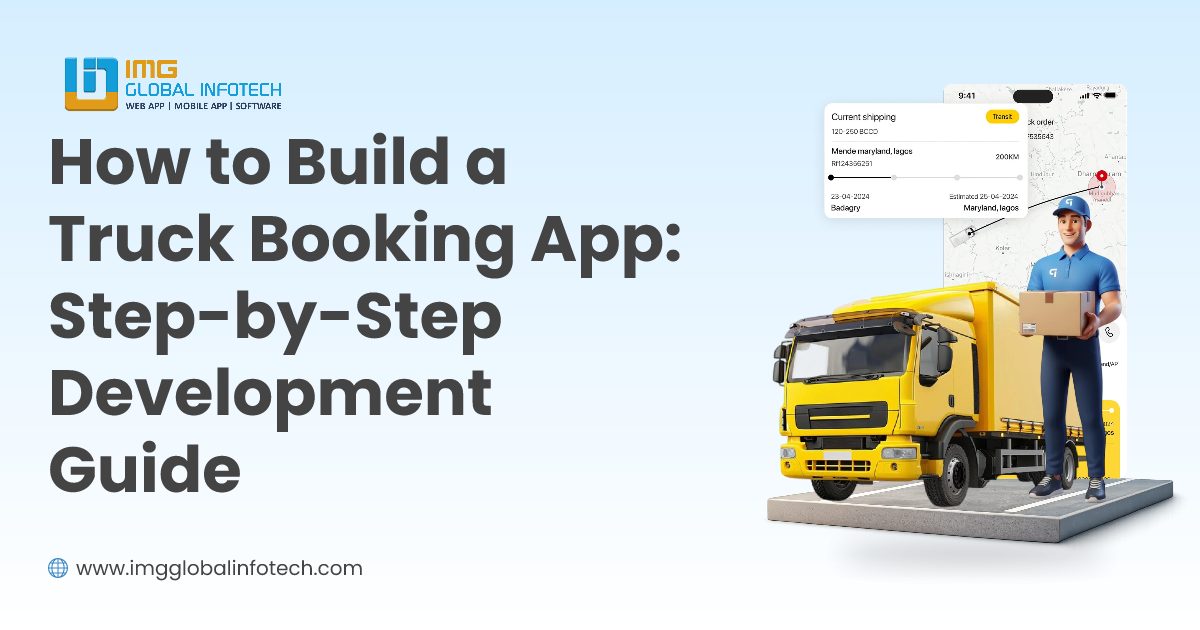 How to Build a Truck Booking App: Step-by-Step Development Guide
How to Build a Truck Booking App: Step-by-Step Development Guide
-
 How to Create a Home Cleaning App Like Helpling : Complete Guide
How to Create a Home Cleaning App Like Helpling : Complete Guide
-
 Top 10 Flower Delivery Apps in 2026
Top 10 Flower Delivery Apps in 2026
-
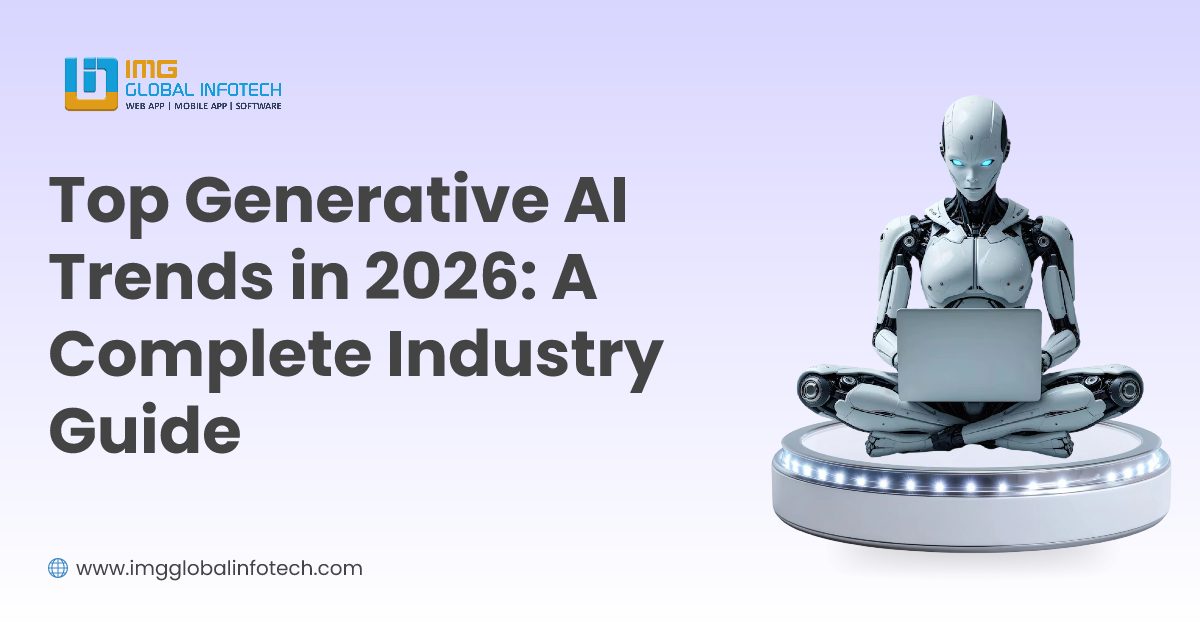 Top Generative AI Trends in 2026: A Complete Industry Guide
Top Generative AI Trends in 2026: A Complete Industry Guide
-
 On-Demand Handyman App Development Guide for 2026
On-Demand Handyman App Development Guide for 2026
Mohit Mittal is the co-founder of a leading IT company with over a decade of experience in driving digital transformation and innovative tech solutions. With a strong background in software development, Mobile app development, E-commerce, business strategy, and team leadership, Mohit Mittal is passionate about helping businesses scale through technology. When not solving complex tech challenges, he enjoys sharing insights on emerging trends, entrepreneurship, and the future of IT.





